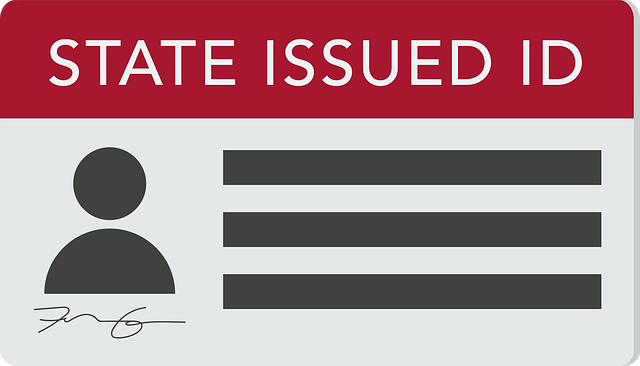In the fast-paced world of commercial trucking, every vehicle record holds a narrative—a tale of journeys, maintenance, and regulatory adherence. With growing emphasis on road safety, fleet managers face heightened scrutiny. This article explores the critical importance of maintaining meticulous vehicle history reports to navigate stringent regulations successfully. From logbook keeping to digital license plate lookups, we delve into strategies that empower fleet operators to ensure compliance, streamline operations, and avoid penalties in today’s highly regulated environment.
- Commercial Vehicles: Stories in Records
- Road Safety Regulations: A Focus on Compliance
- Accurate Logbook Keeping: The Cornerstone of Success
- Timely Truck Fleet Registration: Avoiding Costly Mistakes
- Digitalization Revolutionizes License Plate Lookups
- Compliance Monitoring: Smooth Operations Ensured
Commercial Vehicles: Stories in Records

Commercial vehicles, from towering trucks to versatile trailers, don’t just carry goods; they hold a wealth of information within their records. Each trip, maintenance check, and regulatory inspection leaves its mark on these logs, painting a vivid picture of the vehicle’s history. This narrative includes details about ownership changes, service intervals, accident reports, and crucial safety inspections. By meticulously documenting these events, fleet managers gain invaluable insights into their vehicles’ performance and reliability.
Accessing this historical data is pivotal for effective decision-making. For instance, identifying trends in maintenance issues can help anticipate future problems, leading to proactive repairs. Moreover, a comprehensive vehicle history report serves as a robust defense against potential legal disputes or insurance claims by demonstrating due diligence and responsible management practices.
Road Safety Regulations: A Focus on Compliance

Road safety regulations are becoming increasingly stringent, with a heightened focus on commercial vehicle compliance to reduce accidents and enhance overall road conditions. These stricter guidelines target various aspects, from mandated regular inspections to advanced driver training programs. Non-compliance can result in severe penalties, including vehicle impoundment and hefty fines, which can significantly disrupt fleet operations.
Fleet managers are now more than ever encouraged to adopt digital solutions that streamline record-keeping and compliance monitoring. By utilizing these advanced tools, they can ensure accurate logbook maintenance, timely registration renewals, and easy access to inspection records, thereby avoiding potential pitfalls and maintaining a competitive edge in the industry.
Accurate Logbook Keeping: The Cornerstone of Success

Accurate logbook keeping is an often-overlooked yet indispensable aspect of commercial vehicle management. It serves as a detailed record of each trip, meticulously documenting driving hours, rest periods, and vehicle maintenance. This practice is crucial for several reasons; not only does it ensure compliance with road safety regulations, but it also plays a pivotal role in accident investigations and insurance claims. By maintaining comprehensive logbooks, fleet managers can track driver performance, identify potential issues, and promptly address them, thereby enhancing overall operational efficiency.
Moreover, accurate records enable effective route planning and optimization, leading to reduced fuel costs and improved driver satisfaction. In today’s digital age, advanced logbook management systems offer real-time updates and data analytics, providing fleet managers with valuable insights into their operations. This proactive approach not only helps in avoiding penalties but also contributes to the overall safety and success of the trucking business.
Timely Truck Fleet Registration: Avoiding Costly Mistakes

Timely truck fleet registration is a cornerstone of effective vehicle management and compliance. Failure to register or renew registrations on time can lead to hefty penalties, legal issues, and operational disruptions. With stringent road safety regulations in place, fleet managers must prioritize this task to avoid costly mistakes. Delays can result in vehicles becoming legally unregistered, making them ineligible for road usage, which could ground your entire fleet.
Digitalized platforms have made the registration process more accessible and efficient. These tools enable managers to track renewal dates, set reminders, and even conduct license plate lookups instantly. By leveraging such technology, fleet managers can ensure their trucks and trailers remain in full compliance, thereby maintaining smooth operations and avoiding potential penalties.
Digitalization Revolutionizes License Plate Lookups

In today’s digital era, the process of license plate lookups has undergone a remarkable transformation, setting a new standard for efficiency and accessibility. Traditional methods, reliant on manual records and paper-based documentation, have been replaced by innovative digitized platforms. These cutting-edge systems empower fleet managers with real-time access to crucial vehicle data, including inspection records and compliance status.
Through advanced algorithms and robust databases, these digital platforms streamline the once cumbersome task of license plate identification, allowing for immediate verification of a vehicle’s history. This revolution not only saves valuable time but also enhances accuracy, ensuring that fleet managers make informed decisions based on up-to-date and reliable information.
Compliance Monitoring: Smooth Operations Ensured

Compliance monitoring is an indispensable aspect of managing any commercial fleet, especially with the stringent regulations in place to enhance road safety. By implementing robust systems to track and maintain records, fleet managers can ensure their vehicles are up-to-date with inspections, registrations, and logbooks. This proactive approach not only helps avoid hefty fines but also safeguards the reputation of the company by maintaining a safe and reliable fleet.
In today’s digital age, specialized platforms make compliance monitoring more accessible and efficient. These tools enable managers to conduct quick license plate lookups, retrieve inspection records, and stay informed about upcoming maintenance requirements. Such digitized solutions streamline operations, allowing for better resource allocation and minimizing disruptions, ultimately contributing to a smoother and more stress-free fleet management experience.
In the dynamic world of commercial trucking, a well-maintained vehicle history is not just a record—it’s a safety net. As regulations tighten and technology advances, fleet managers now have powerful tools at their disposal to ensure compliance and streamline operations. By embracing digitized platforms for license plate lookups and inspection records, companies can proactively navigate the complex landscape of road safety, ultimately fostering smoother, more efficient transportation practices.



